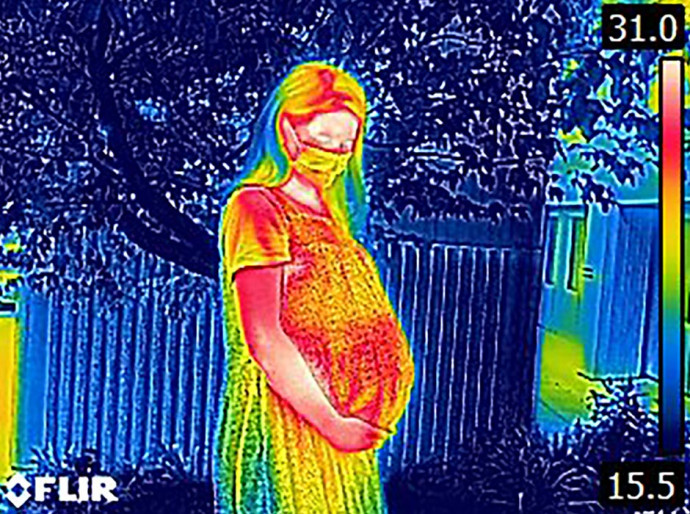Research
Published 18 June 2025Helpful hormone – prolactin helps mothers keep cool during pregnancy

It supports milk production and stimulates caregiving behaviour in mothers, now a University of Otago – Ōtākou Whakaihu Waka study has found prolactin also regulates body temperature during pregnancy
Senior author Dr Rosie Brown, of the Department of Physiology, says adjusting body temperature is a critical function of the central nervous system and is vital to keep both mum and baby healthy.
The study, published in Cell Reports, has shown prolactin – a key pregnancy hormone – acts within the brain’s hypothalamus to help regulate core body temperature throughout gestation.
“The body needs to function differently to cope during pregnancy – early on core body temperature rapidly elevates, likely because of rising progesterone levels, then increased metabolic heat occurs thanks to foetal growth, maternal tissue growth, and greater food intake,” Dr Brown says.
A mother must lose this extra metabolic heat both for herself and for her developing offspring.
“Despite all these thermal pressures, core body temperature actually reduces in late pregnancy, and we now know it is prolactin which helps keep a mum cool.
“This seems to be an important change to promote heat loss and to, ultimately, provide a safe environment for the foetus, as hyperthermia can impact brain development.”
Dr Brown says the finding provides better understanding of how the changing hormones of pregnancy and lactation act in the maternal brain to alter how the body functions and promote survival and wellbeing of a mother and her offspring.
“Obviously, that helps us understand what is happening at a cellular level during pregnancy, but understanding adaptable changes in body temperature in mammals may also be critical for animal reproduction in a world facing climate change.
“The prolactin pathway in the brain may be a mechanism that helps mammals adapt to future thermal challenges.”
Publication details:
Prolactin modulation of thermoregulatory circuits provides resilience to thermal challenge of pregnancy
Sharon R. Ladyman, Teodora R. Georgescu, Andrew M. Stewart, Zin Khant Aung, Isaiah Cheong, David R. Grattan, Rosemary S.E. Brown
Cell Reports
Additional information: Helpful hormone – prolactin helps mothers keep cool during pregnancy (UOO media release)
Additional information: Prolactin modulation of thermoregulatory circuits provides resilience to thermal challenge of pregnancy (Cell Reports)
RESEARCHER
Dr Rosie Brown, Dr Sharon Ladyman, Professor Dave Grattan
ORGANISATION
University of Otago
FUNDING SUPPORT
Marsden Fund (Standard and Fast-Start)
CONTRACT OR PROJECT ID
MFP-UOO2110 (Dave Grattan, Sharon Ladyman), MFP-UOO1708 (Rosie Brown)
